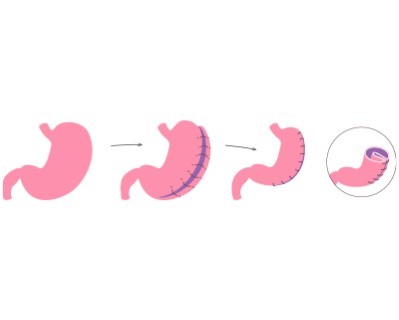Gastric Plication
- Purpose: Reduces the size of the stomach without removing any part of it.
- Procedure: Folds the stomach inward and sutures it to reduce its volume.
-
Note: The information provided here applies to elective Gastric Plication procedures under standard conditions. However, specifics may vary depending on individual patient factors, such as the presence of obesity-related comorbidities, patient tolerance, or any complications that might arise during or after the surgery. The patient’s overall health, the complexity of the procedure, and the need for additional interventions can also influence the surgery and recovery process.
Inpatient/Outpatient
Gastric Plication is typically performed as an inpatient procedure. This minimally invasive weight-loss surgery usually requires patients to be admitted to the hospital for close monitoring before, during, and after the procedure. Most patients will require a hospital stay to ensure proper recovery and to monitor for any potential complications, such as bleeding, infection, or nutrient deficiencies.Hospital Stay Duration
Patients undergoing Gastric Plication usually stay in the hospital for 1 to 2 days. The initial post-operative period involves monitoring in a specialized care unit to observe for any complications and to manage pain and recovery. The length of stay may be extended if the patient has other underlying conditions or if complications arise during recovery.Type of Anesthesia
The procedure is performed under general anesthesia, meaning the patient will be fully unconscious during the surgery. General anesthesia is necessary to keep the patient comfortable and still, allowing the surgical team to perform the procedure safely and effectively.Travel After Procedure
Patients are generally advised to avoid travel, particularly long-distance or air travel, for at least 1 to 2 weeks after Gastric Plication surgery. This period allows time for initial recovery and healing. The healthcare provider will provide specific recommendations regarding travel and activity levels based on the patient’s recovery progress.Pre-procedure Preparation
Preparation for Gastric Plication typically involves several steps, including dietary adjustments and lifestyle changes to optimize health before surgery. Patients are usually instructed to follow a liquid or low-calorie diet for a few days to a week before surgery to reduce the size of the liver and improve surgical outcomes. Patients may also need to stop taking certain medications, particularly blood thinners, as directed by their healthcare provider to minimize the risk of bleeding during surgery. A comprehensive pre-operative assessment, including blood tests and imaging studies, is conducted to plan the surgery.Procedure Duration
The Gastric Plication procedure typically takes 1 to 2 hours. The surgery involves folding the stomach in on itself and suturing the folds to reduce the stomach’s volume by about 70%, thereby limiting food intake and promoting weight loss. Unlike other bariatric procedures, no part of the stomach is removed, and no foreign objects, such as bands, are implanted.Recovery Time
Recovery from Gastric Plication surgery is generally quicker than other bariatric surgeries. Most patients can return to light activities within a few days, but it is recommended to avoid strenuous exercise for several weeks. Patients will need to follow a special post-procedure diet, starting with liquids and gradually progressing to pureed and then solid foods over several weeks. Full recovery and adaptation to the new eating pattern may take several weeks to a few months.Estimated Cost
The cost of Gastric Plication can vary depending on the hospital, geographic location, and the specifics of the patient’s condition. For accurate cost information, patients should contact their healthcare provider or hospital directly.Post-procedure Care
Post-procedure care for Gastric Plication involves regular follow-up appointments to monitor weight loss, nutritional status, and any potential complications. Patients will need to follow a structured eating plan to ensure proper nutrition and maximize weight loss. Regular physical activity is encouraged to support long-term weight loss and overall health. Patients will also receive guidance on incorporating healthy lifestyle changes and may benefit from psychological support or counseling to address any emotional or behavioral issues related to eating and weight loss.
_20240708122007087317__0.webp)
